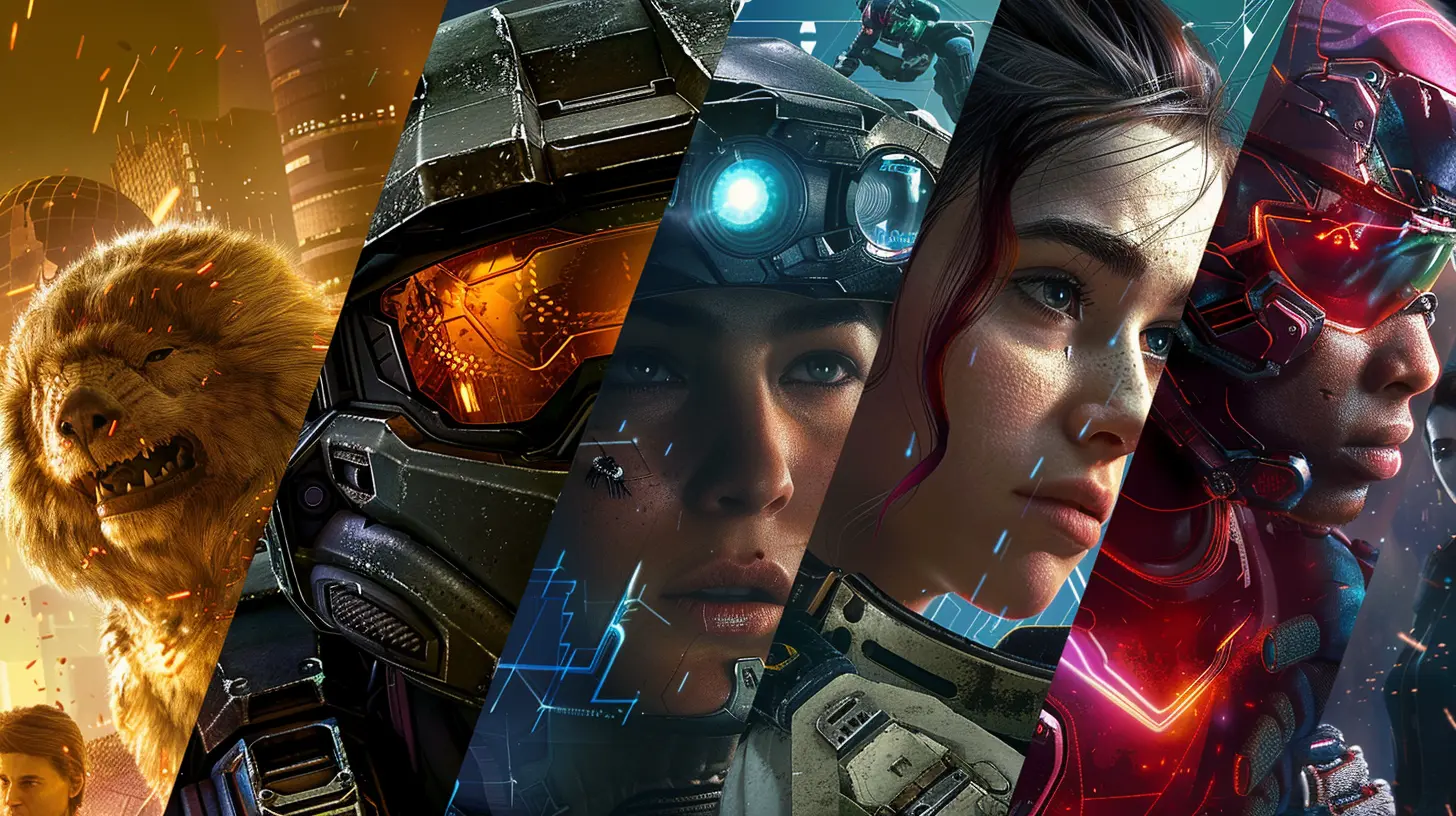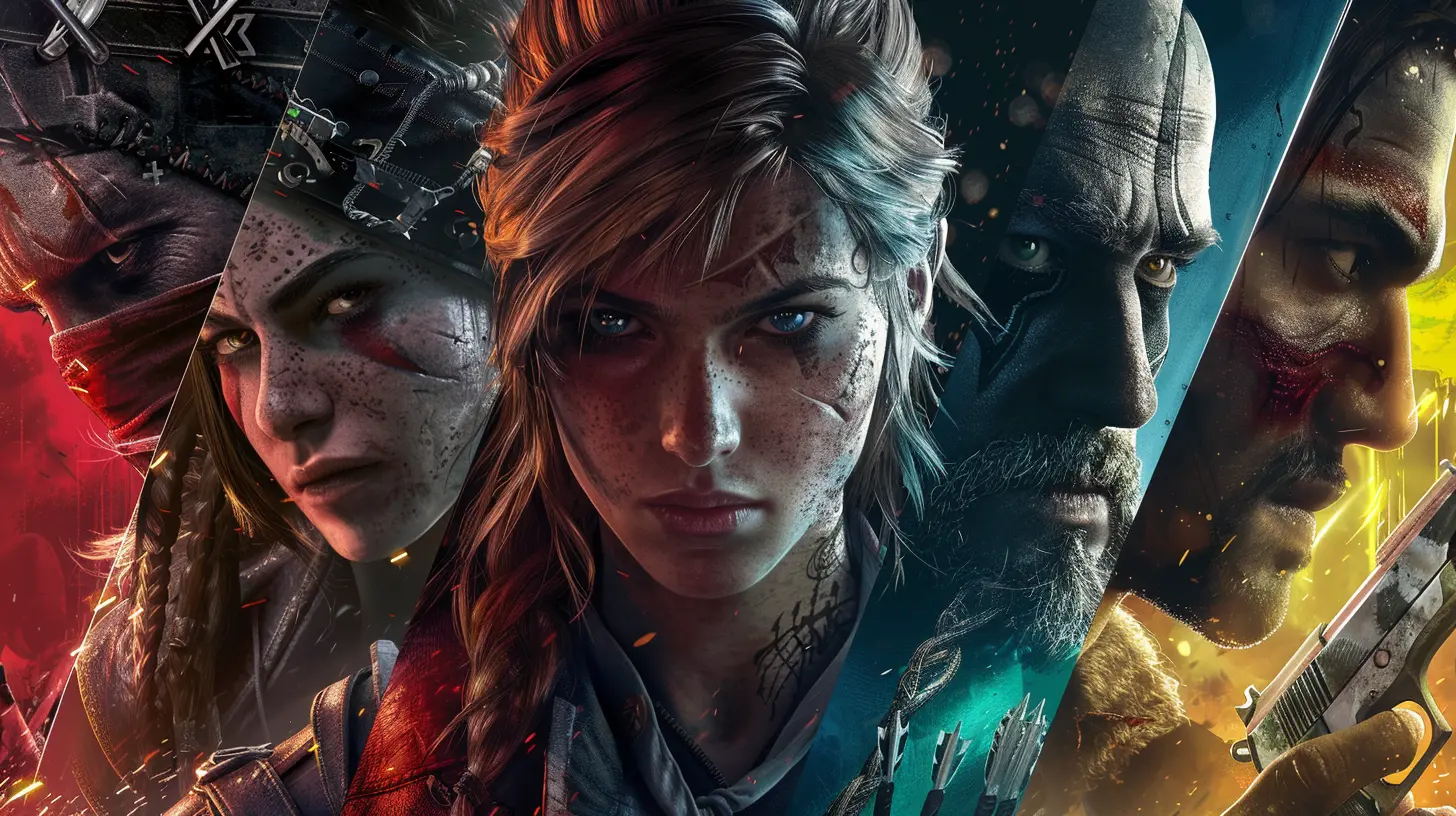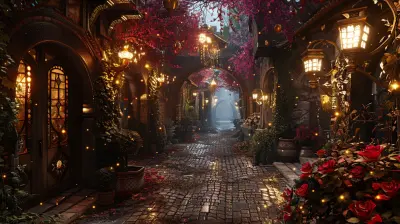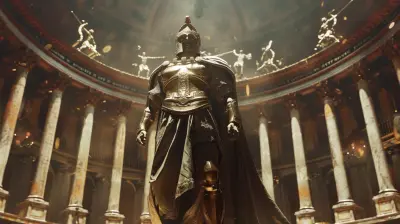How Multiplayer Titles Stack Up at the Game Awards
22 May 2025
Every year, the Game Awards arrive like the Oscars for us gamers. It's a night of glitz, glamour, and a lot of shouting at our screens when our favorite games don’t win. But let’s face it—while single-player adventures and cinematic narratives often steal the spotlight, multiplayer titles hold an equally massive chunk of our gaming hearts. I mean, where else can you trash-talk your best friend while simultaneously saving their digital life? Multiplayer games don’t just entertain us; they build communities, fuel rivalries, and create stories that are often better than any scripted plot.
So, how exactly do multiplayer games stack up when it comes to the Game Awards? Do they get the love they deserve? Are they judged fairly compared to those tear-jerking single-player campaigns? Let’s dig deeper and figure out what makes multiplayer titles a force to reckon with at this grand celebration of gaming.
Multiplayer Games at the Game Awards: Are They Really Underdogs?
If you’ve ever tuned into the Game Awards, you might’ve noticed something interesting: the big, shiny Game of the Year award tends to favor sprawling single-player epics. Titles like The Last of Us Part II or Elden Ring have made their way to the throne, and fair enough—they’re masterpieces. But multiplayer games? They don’t often get to hold up that golden trophy.Why is that? Well, it’s not necessarily because multiplayer games are worse. (Let’s not go full-on conspiracy theorist here.) It’s just that single-player titles have a knack for delivering those “OMG, I’m crying at 2 a.m.” moments. They’re designed to tell stories, evoke emotions, and leave you thinking about them long after the credits roll.
Multiplayer games, on the other hand, have a different vibe. They’re more about the experience—whether it’s pulling off a clutch play in Call of Duty, nailing a perfectly-timed combo in Street Fighter, or laughing hysterically as your friends betray you in Among Us. These are moments you share with others, rather than ones crafted by developers. And sure, while those memories are iconic, they don’t always carry the same emotional weight that awards panels tend to favor. 
When Multiplayer Games Do Shine
Now, this doesn’t mean that multiplayer games are totally ignored at the Game Awards. In fact, there are specific categories where they absolutely dominate—like Best Multiplayer Game. (Shocker, right?) But let’s be real: this category feels more like a consolation prize when compared to the coveted Game of the Year.Take Among Us: it won Best Multiplayer Game back in 2020, and it deserved every bit of applause. It was THE game of the pandemic, bringing people together when the world was falling apart. But did it have any shot at Game of the Year? Not really. It didn’t have cinematic cutscenes or a deep narrative—we all know it’s just tiny beans accusing each other of murder. But does that make it any less iconic? Heck no.
Similarly, Fortnite has been a pop culture juggernaut for years, bridging the gap between gaming and mainstream entertainment. Concerts, collaborations, literal Ariana Grande performances… Fortnite has it all! Yet, it seems like the industry itself doesn’t quite know how to categorize games like these when it comes to major awards. 
The Rise of Co-Op Games in Awards Space
You know what’s interesting, though? Co-op games—the perfect blend of single-player storytelling and multiplayer shenanigans—have started carving out a unique spot for themselves. Case in point: It Takes Two winning Game of the Year in 2021.This was HUGE. Like, “Mario just found mushrooms in real life” huge. Here’s a co-op game that wasn’t just “fun with friends”; it was also beautifully designed, packed with creativity, and told a heartfelt story about fixing relationships. In other words, it had the depth of a single-player game but never strayed far from its multiplayer roots.
It was a win not just for It Takes Two but for all multiplayer games. It proved that these titles can offer more than just chaotic fun—they can tell powerful stories too, all while strengthening bonds between players. Honestly, this might be the future of multiplayer gaming at award shows: titles that combine the richness of narrative gaming with the joys of collaborative gameplay. 
Why Multiplayer Titles Deserve More Praise
Still, it feels like multiplayer games often don’t get the recognition they deserve. There’s more to them than meets the eye, and they’ve been pushing the gaming industry forward in ways that single-player epics can’t even dream of.For starters, multiplayer games are social hubs. They’ve essentially become virtual playgrounds where friendships are forged—and, occasionally, tested (looking at you, Overcooked). They’ve given rise to esports, streaming, and even entire careers for gamers. They’re also at the forefront of innovation, whether it’s through cross-platform play, live service updates, or groundbreaking community-driven events.
Plus, multiplayer games naturally evolve over time. Think about Rainbow Six Siege or Apex Legends. These aren’t just games—they’re living, breathing ecosystems that grow with their communities. Award-worthy? I’d say so.
The Future of Multiplayer Games at the Game Awards
So, what’s next? Will we ever see a day when a pure multiplayer game takes home the Game of the Year trophy? Honestly, it’s tough to say. But here’s what I do know: multiplayer gaming is only getting bigger, bolder, and more creative.We’ve got titles like Valorant, Rocket League, and Splatoon 3 redefining what multiplayer can be, combining competitive gameplay with unique visual styles and mechanics. We’ve got the rise of games-as-a-service titles like Destiny 2 and Genshin Impact, which blur the line between multiplayer and narrative-driven content. And who knows? Maybe one day, a VR multiplayer game will shake up the awards scene and make us question everything we thought we knew about gaming.
In the meantime, though, let’s give multiplayer games the credit they deserve. They might not always be the tear-jerking masterpieces that dominate the headlines, but they’re the lifeblood of gaming culture. They’re where friendships are born, memories are made, and countless hours of joy (and rage) are spent.
Final Thoughts
At the end of the day, multiplayer titles may not always get the spotlight at events like the Game Awards, but their impact is undeniable. They’ve shaped the way we play, connect, and compete as gamers, and that’s something no trophy can ever truly measure. So the next time you and your squad are up till 3 a.m., arguing over whose fault that last round was, take a moment to appreciate the magic of multiplayer gaming. You’re not just playing a game—you’re creating moments that last a lifetime.And hey, who knows? Maybe multiplayer games are just a dark horse waiting for their moment to shine on the Game Awards stage. Until then, we’ll keep enjoying the chaos, one match at a time.
all images in this post were generated using AI tools
Category:
Game AwardsAuthor:

Lana Johnson
Discussion
rate this article
3 comments
Thor McTier
Examining multiplayer titles at the Game Awards highlights their impact and evolving trends in the gaming industry.
June 10, 2025 at 3:01 PM

Lana Johnson
Absolutely! Multiplayer titles have transformed the gaming landscape, reflecting trends in social interaction and community engagement. Their recognition at the Game Awards underscores their significance in the industry.
Ryder Murphy
The Game Awards showcase the evolution of multiplayer titles, highlighting their impact on gaming culture. This year’s contenders reflect diverse genres and innovative mechanics, emphasizing teamwork, competition, and community engagement that enrich player experiences globally.
May 29, 2025 at 3:14 PM

Lana Johnson
Thank you for your insight! The evolution of multiplayer titles at The Game Awards indeed highlights their significant influence on gaming culture and community engagement.
Brittany McVaney
Exciting insights on multiplayer's Game Awards performance!
May 24, 2025 at 2:34 AM

Lana Johnson
Thank you! I'm glad you found the insights engaging! Multiplayer titles have certainly made a significant impact at the Game Awards.



